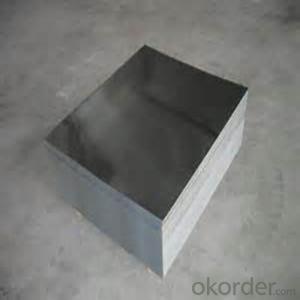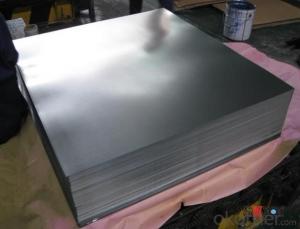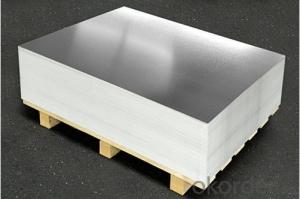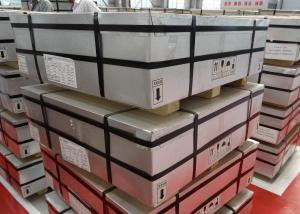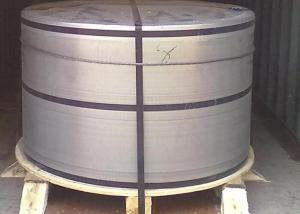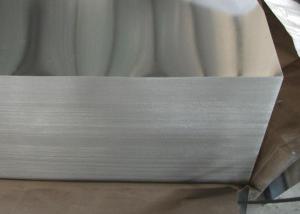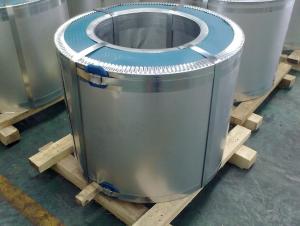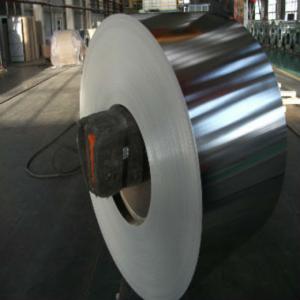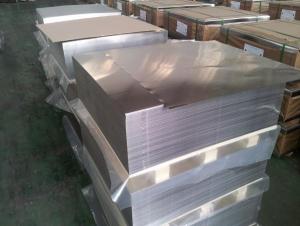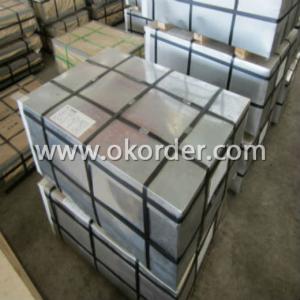Prime Quality TFS for Crown Caps Industry
- Loading Port:
- Shanghai
- Payment Terms:
- TT OR LC
- Min Order Qty:
- 25 m.t.
- Supply Capability:
- 25000 m.t./month
OKorder Service Pledge
OKorder Financial Service
You Might Also Like
Item specifice
1.Structure of Prime Quality TFS for Crown Caps Industry Description
Tin Free Steel (TFS) is thin black plate with two coats; one of metal chrome film and the other of chromium oxide. TFS is ideal for the manufacturing of crowns, container ends & shallow drawn cans etc. TFS is also known as Chromium coated steel.
2.Main Features of the Prime Quality TFS for Crown Caps Industry
Corrosion Resistant
Easier to recycle
Sulphur Blackening Resistance: TFS has sulphur resistance properties, which can be used for canning protein- rich food such as fish.
Filiform Rust Resistance: Filiform is superficial corrosion of the base metal. TFS has a superior base metal which makes it corrosion resistance.
Coating: The coating in TFS is not amphoteric (having the characteristic of an acid and a base, is a compound that can react as either an acid or a base). This means that detergents and dispersion colors can be packed easily.
Paint Adhesion : TFS possesses better paint adhesion properties, thus making it ideal for DRD cans and adhesive bonded cans.
Internal Coating / Lacquering can be avoided in the case of TFS used to store motor oil or cooking oil.
3.Prime Quality TFS for Crown Caps Industry Images
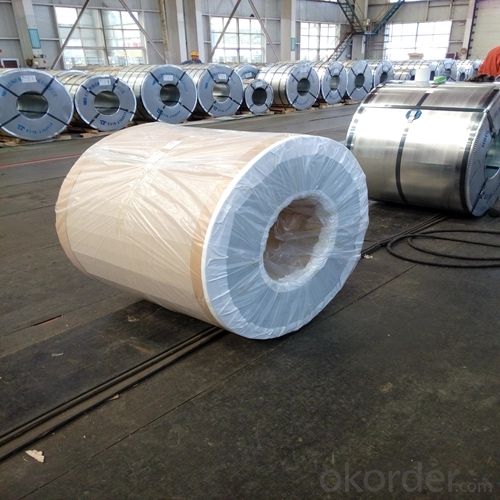
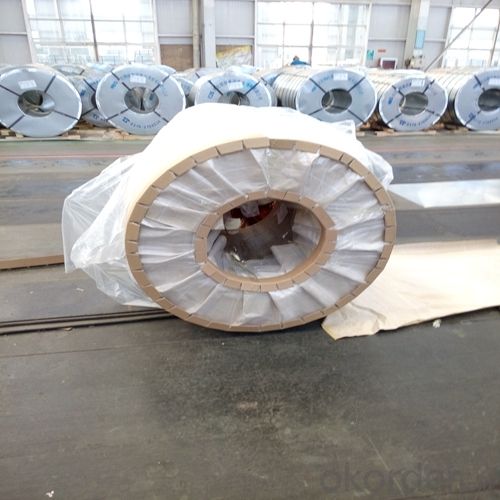
4.Prime Quality TFS for Crown Caps Industry Specification
Thickness 0.14mm to 0.35mm
Width 500mm to 1200mm
Length : As per customers specification
Temper : T1 to T5, DR 7 to DR 9
5.FAQ of Prime Quality TFS for Crown Caps Industry
-What is MOQ?
Our MOQ would be 25 tons.
- Do you only have prime quality TFS ?
We can supply both prime and second quality TFS.
- Q:How does tinplate compare to glass in terms of packaging applications?
- Tinplate has several advantages over glass in terms of packaging applications. Firstly, tinplate is much lighter than glass, making it easier and cheaper to transport. Additionally, tinplate is more durable and less prone to breakage than glass, reducing the risk of product damage during handling and shipping. Moreover, tinplate provides a better barrier against air, moisture, and light, ensuring the preservation and quality of the packaged goods. Lastly, tinplate is more cost-effective than glass, making it a preferred choice for many packaging applications.
- Q:Can tinplate be welded or soldered?
- Yes, tinplate can be welded or soldered.
- Q:Can tinplate be used for solar panel applications?
- Yes, tinplate can be used for solar panel applications. Tinplate is a type of steel coated with a thin layer of tin, which provides corrosion resistance and durability. It can be used as a substrate material in solar panel manufacturing processes, providing a stable base for the photovoltaic cells and protecting them from environmental factors. Additionally, tinplate's low cost and ease of processing make it an attractive option for solar panel applications.
- Q:Can tinplate be used for microwave-safe packaging?
- No, tinplate cannot be used for microwave-safe packaging as it is made of steel coated with a thin layer of tin, which can cause sparks and potential damage to the microwave.
- Q:What is the tin plated iron?
- When the coating is damaged, the raw water is made up of the surrounding water, oxygen, etc.. Zinc is the anode oxidized iron tin anode is protected, do not participate in the reaction. Because zinc is more active than iron, the living metal is the negative.
- Q:What are the different types of tinplate surface treatments?
- There are several different types of tinplate surface treatments, including electrolytic tinplate (ETP), blackplate, tin-free steel (TFS), and lacquered tinplate.
- Q:How is the thickness of tinplate measured?
- The thickness of tinplate is typically measured using a specialized instrument called a micrometer, which accurately measures the distance between the surfaces of the tin coating.
- Q:What are the typical lead times for tinplate tooling?
- The typical lead times for tinplate tooling can vary depending on the complexity of the project and the specific requirements. However, on average, lead times for tinplate tooling can range from a few weeks to a couple of months.
- Q:What are the different methods of opening tinplate containers?
- There are several methods of opening tinplate containers, including using a can opener, a knife, a key, or pulling on the tab for easy-open cans.
- Q:What are the common uses of tinplate?
- Tinplate is commonly used in the packaging industry for making cans, containers, and lids for food and beverages. It is also used in the production of aerosol cans, paint cans, and metal closures. Additionally, tinplate is used for making various household items such as kitchen utensils, storage boxes, and tin toys.
1. Manufacturer Overview |
|
|---|---|
| Location | |
| Year Established | |
| Annual Output Value | |
| Main Markets | |
| Company Certifications | |
2. Manufacturer Certificates |
|
|---|---|
| a) Certification Name | |
| Range | |
| Reference | |
| Validity Period | |
3. Manufacturer Capability |
|
|---|---|
| a)Trade Capacity | |
| Nearest Port | |
| Export Percentage | |
| No.of Employees in Trade Department | |
| Language Spoken: | |
| b)Factory Information | |
| Factory Size: | |
| No. of Production Lines | |
| Contract Manufacturing | |
| Product Price Range | |
Send your message to us
Prime Quality TFS for Crown Caps Industry
- Loading Port:
- Shanghai
- Payment Terms:
- TT OR LC
- Min Order Qty:
- 25 m.t.
- Supply Capability:
- 25000 m.t./month
OKorder Service Pledge
OKorder Financial Service
Similar products
New products
Hot products
Related keywords
